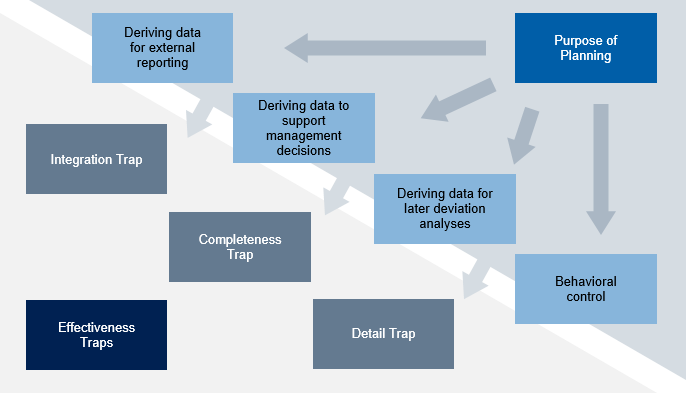Around 80% of the issues that are discussed in a corporate planning project are totally tool-independent. More than that, the value added of introducing a new tool typically comes from a process redesign rather than from the tool itself.
Category: Corporate Planning
Way more than in operational processes, corporate planning is very hard to evaluate. What tells you that your planning is “good”? What does “good” even mean? And is that worth the money your company spends on it? A new study in cooperation with a German university provides answers.
Planning always means handling uncertainty. Organizations want to avoid uncertainty as good as possible, and they use planning as a means to achieve that. A frequent misunderstanding in doing so is that a more detailed planning automatically means a more accurate planning. The opposite can be the case.
Budgeting and Target-Setting have become a tradition in many companies, even though they can cause quite obvious negative side effects. Provocatively speaking, classical budgeting processes not only are very time-consuming and costly. They regularly force people to cheat.
The growing demand for forward-looking information will put a sharper focus on integrated corporate planning. Experience shows that the introduction of effective planning processes is a big challenge in many organizations.
